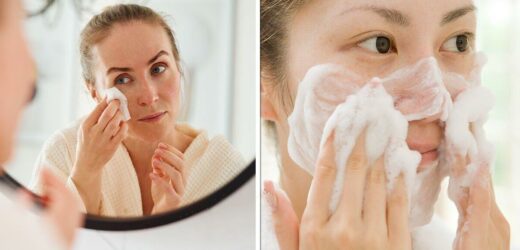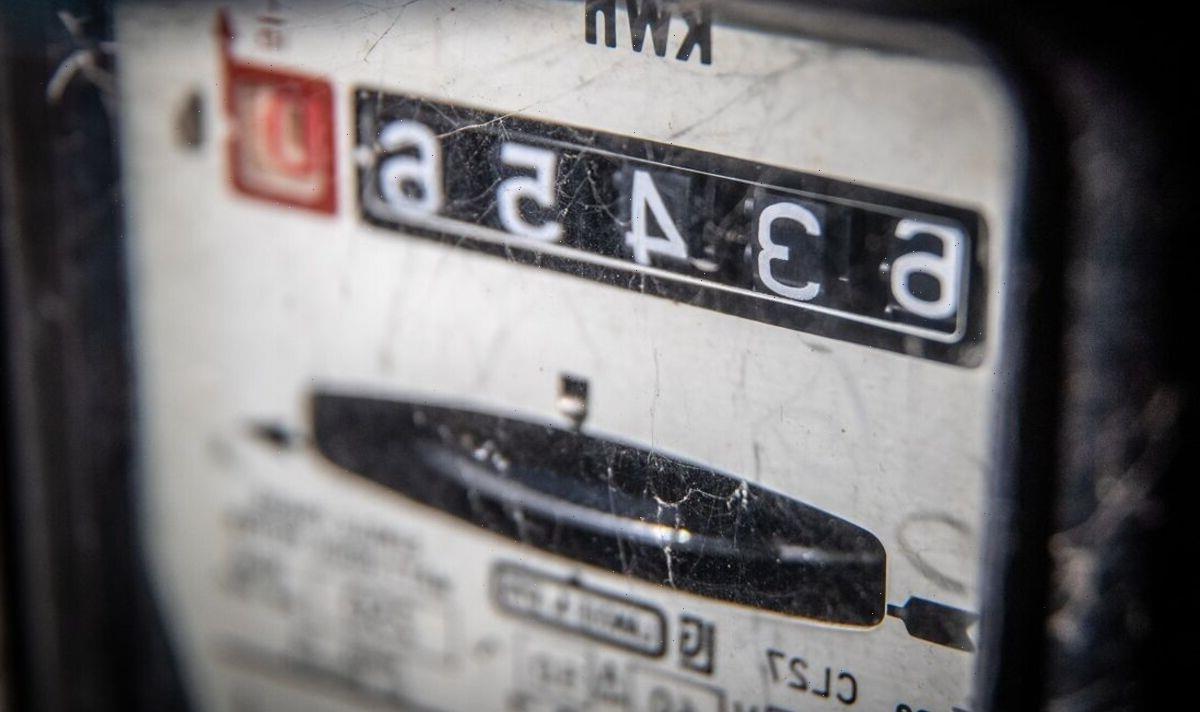Boots promote No7 menopause skincare range
We use your sign-up to provide content in ways you’ve consented to and to improve our understanding of you. This may include adverts from us and 3rd parties based on our understanding. You can unsubscribe at any time. More info
Dr Vanita Rattan is a cosmetic formulator and a doctor in Medicine (MBBS) and Physiology/Pharmacology (BSc) who has 40,000 cases of hyperpigmentation globally within her career, with an impressive 95 percent success rate. She spoke to Express.co.uk about the products that are advertised to look after your skin, but are in fact harmful to most people. Dr Rattan listed the items that one shouldn’t use on the skin in order to maintain a youthful glow.
Make-up wipes are a popular product that are handy for removing make-up, but “don’t really clean your skin”, according to Dr Rattan.
“They tend to spread around dirt and grime, while irritating your skin in the process,” she explained.
“Then there’s the temptation to scrub your face with makeup remover wipes, which can also cause red, inflamed skin and lead to early wrinkles. Using make-up wipes too often can dehydrate your skin, as they remove the natural oils on your face.
“They are full of preservatives, chemicals and artificial fragrances which can aggravate your skin. Not to mention their contribution to environmental damage, as many are made with non-biodegradable plastic and synthetic fibres which clog our sewers, line our beaches and fill wastelands.”

View this post on Instagram
A post shared by Dr Vanita Rattan (@skincarebydrv)
To remove makeup effectively and leave skin feeling supple, Dr Rattan recommended using an oil melting cleanser followed by a micellar gel wash instead.
Apple cider vinegar has become a popular home remedy for acne, blemish scars, and age spots.
However, Dr Rattan warned that “DIY skincare is unregulated and apple cider vinegar is an extremely harsh, acidic ingredient to be using on your face”.
She continued: “Long-term use of undiluted apple cider vinegar can corrode your face, causing permanent damage to the skin. Apple cider vinegar should not be left on the skin for long periods of time, and it shouldn’t be used to treat wounds, moles, or infections as it could burn your skin.
DON’T MISS:
Daily 95p skincare hack to ‘lessen the appearance of wrinkles’ [BEAUTY]
Stop common daily habit that leaves neck with ‘age spots’ [EXPERT]
Face yoga massage to reduce eye wrinkles and de-puff skin [ANTI-AGEING]
“Instead, for reduction of hyperpigmentation on the face, including melasma, which may have developed over time from UV damage, use a doctor backed facial pigmentation kit.”
Pore strips is another product that has become popular over the past few years – people tend to enjoy peeling away the dirt, debris, and blackheads from the nose.
However, Dr Rattan stressed that “the effects don’t last and aren’t worth it as pore strips aren’t powerful enough to clean pores”.
“Typically, they can contain alcohol and other chemicals that are harmful to the skin and can further irritate it too,” she explained.
View this post on Instagram
A post shared by Dr Vanita Rattan (@skincarebydrv)
“Instead of using pore strips, focus on the underlying issue that causes open pores on the face – enlarged pores, overactive sweat glands, and sun damage.
“Wear a Zinc Oxide SPF 50 sunscreen daily, and speak to your dermatologist about the best skincare range to improve elastin and collagen that will support your pores to close them over time.”
Coconut oil is great for dry skin, but if one has acne, or acne-prone skin, it might not be the best option, according to Dr Rattan.
“Coconut oil has a comedogenic rating of four or five, which means it has a high likelihood of clogging the pores if you have acne-prone skin,” the expert said.

“It also doesn’t have a very rich nutrient profile with topical benefits. Instead, use a lightweight gel face wash with actives like salicylic acid to unclog the pores and niacinamide to control sebum.”
Facial cleansing brushes are handheld or battery-operated devices that gently exfoliates the skin and effectively cleanses it of dirt, oil, and dead skin cells.
When used with an effective facial cleanser, a facial cleansing brush can remove pore-clogging impurities and improve blood circulation in the face, said Dr Rattan, however, “they are definitely not right for everyone and, also, unnecessary to add to your skincare routine”.
“Most people use facial cleansing brushes incorrectly by using it every day, choosing a brush that is too firm, or choosing the wrong setting which over stimulates the skin,” Dr Rattan explained.
“This can lead to over exfoliation, which can disrupt the skins barrier, causing it to become easily dehydrated and inflamed. My advice would be to avoid the facial cleansing brushes and stick to your hands.”
Source: Read Full Article

